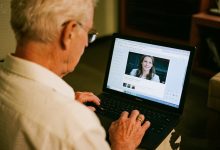Dr. Wenbin Xu is an orthopedic surgeon at Sir Run Run Shaw Hospital, affiliated with Zhejiang University School of Medicine. Since 2022, he has been sharing medical knowledge online, reaching over 10 million followers. In his view, many patients lack sufficient understanding of their conditions. “People have an incredible tolerance for pain. They’re reluctant to see doctors and often don’t know when they should seek help.” He shares these stories to help readers better understand illness and find courage to face it.
The Herniated Disc and the Man Who Couldn’t Stop Working
I once treated a patient I never actually met—a “breadwinner” whose story came to me through his mother. That day, a woman in her fifties with short, permed hair poked her head around my office door. Before I could speak, she pulled out an X-ray and said, “Doctor, my son’s leg has been hurting for a week. He can’t take time off work, so could you please take a look?”
Since accessing the digital scan required the last six digits of the patient’s ID, she called her son. The young man described pain and numbness running from his right buttock down through his thigh and calf to his ankle—symptoms that had persisted for about a week. Combined with the imaging, I diagnosed an acute herniated disc.
His mother, clearly a take-charge type, had only two questions: First, how could we avoid surgery and reduce the pain enough for her son to keep working? Second, besides the plastic bag full of traditional medicine she’d brought, did we need to add anything else?
I was somewhat taken aback. “Your son’s health comes first,” I explained. “We need to address this herniated disc properly. If there’s nerve damage, surgery is necessary. If not, we can try conservative treatment, but he really should rest at home.”
She then explained their situation. Her son had two children and faced significant financial pressure. In the current tough economy, he’d just landed a temporary sales position. Taking two weeks off would mean losing his job to someone else. So despite severe back and leg pain, he’d only managed to get a quick massage from a traditional practitioner before heading back to work.
After a College Student’s Desperate Leap
One evening in spring 2022, I was in the middle of routine surgery when the Chief of Medical Affairs called urgently: “Get to the ER now!”
When I arrived, the trauma room was already packed with department heads—general surgery, thoracic surgery, vascular surgery, urology… Pushing through the crowd, I saw a young man on the gurney, pale-skinned and delicate-featured, looking barely twenty.
He had jumped from a building. A local college senior about to graduate, he’d been given a deadline by his advisor to submit his thesis. Unable to complete it, he’d asked for an extension of just two days. When this proved impossible, faced with an unfinished thesis and an immovable deadline, he made a devastating choice.
The ER chief briefed us: “He’s bleeding everywhere—lungs, kidneys, liver… His pelvis is fractured and hemorrhaging internally. Both femurs are broken. He’s in hemorrhagic shock.”
As the orthopedic surgeon, I focused on the fractures. Lifting his pant leg, I saw that one broken femur had punctured through the skin. Despite years of medical experience, the sight made my heart drop—I knew the excruciating pain he must be feeling.
After 24 grueling hours with over twenty colleagues working in shifts, we stabilized his blood pressure. Having saved his life, we proceeded with treating the fractures and monitoring his pulmonary, hepatic, and renal contusions.
In 2024, news of public figures choosing suicide or euthanasia frequently trended on social media. According to China’s health statistics, approximately 80,000 people died by suicide in 2021.
Modern life brings immense pressure, and some view suicide as a valid choice. As a doctor who’s participated in countless life-or-death situations, I find this hard to accept. Every life has inherent value. Life’s beauty lies in its constant change. Pain is temporary—no matter how difficult things seem now, the future always holds possibility for transformation.
The Severed Man: A Race Against Time
It was a late summer evening with a hint of autumn chill when the ER alarm shrieked urgently. Opening the door, I saw a man on the gurney, no more than thirty, his right shoulder grotesquely empty. Thick gauze, soaked black with blood, covered the wound.
Beside him stood a small woman around fifty, dressed in dark clothes, her eyes as lifeless as her attire. Upon learning I was the orthopedic surgeon on call, she suddenly dropped to her knees, sobbing: “Doctor, please save my son—his arm is gone!”
Limb reattachment is a race against time. The sooner it’s performed, the higher the survival rate and better the functional recovery. Four hours had already passed since the accident—dangerously close to the 6-7 hour window for successful reattachment.
Our hand surgery team split into two groups with practiced efficiency. One team debrided the stump, removing necrotic tissue. The other worked on the severed limb, using external fixation to reconnect the bones and restore basic anatomical structure. Then they reconnected the major blood vessels to see if circulation would return.
After 25 hours of continuous surgery, we saved the arm. The hand surgery chief told me: “We saved the entire arm and reconnected the bones. Once we remove the external fixator, we’ll place internal plates. We saved the thumb, but the other four fingers were ischemic too long. It’s unfortunate, but at least he has some function.”
In the roar of modern machinery, economies surge forward, and many sacrifice their youth to their work. But regardless of occupation, “workplace safety” must be more than a slogan on the wall—it’s a responsibility each person owes to themselves and their families.
Note: This account has been translated and adapted from Dr. Xu’s original Chinese narrative. While medical practices and healthcare systems differ between countries, the fundamental challenges of balancing health, work, and life pressures remain universal. If you’re experiencing severe pain, mental health crisis, or workplace injury, please seek immediate medical attention. In the US, you can call 988 for mental health support or 911 for medical emergencies.








